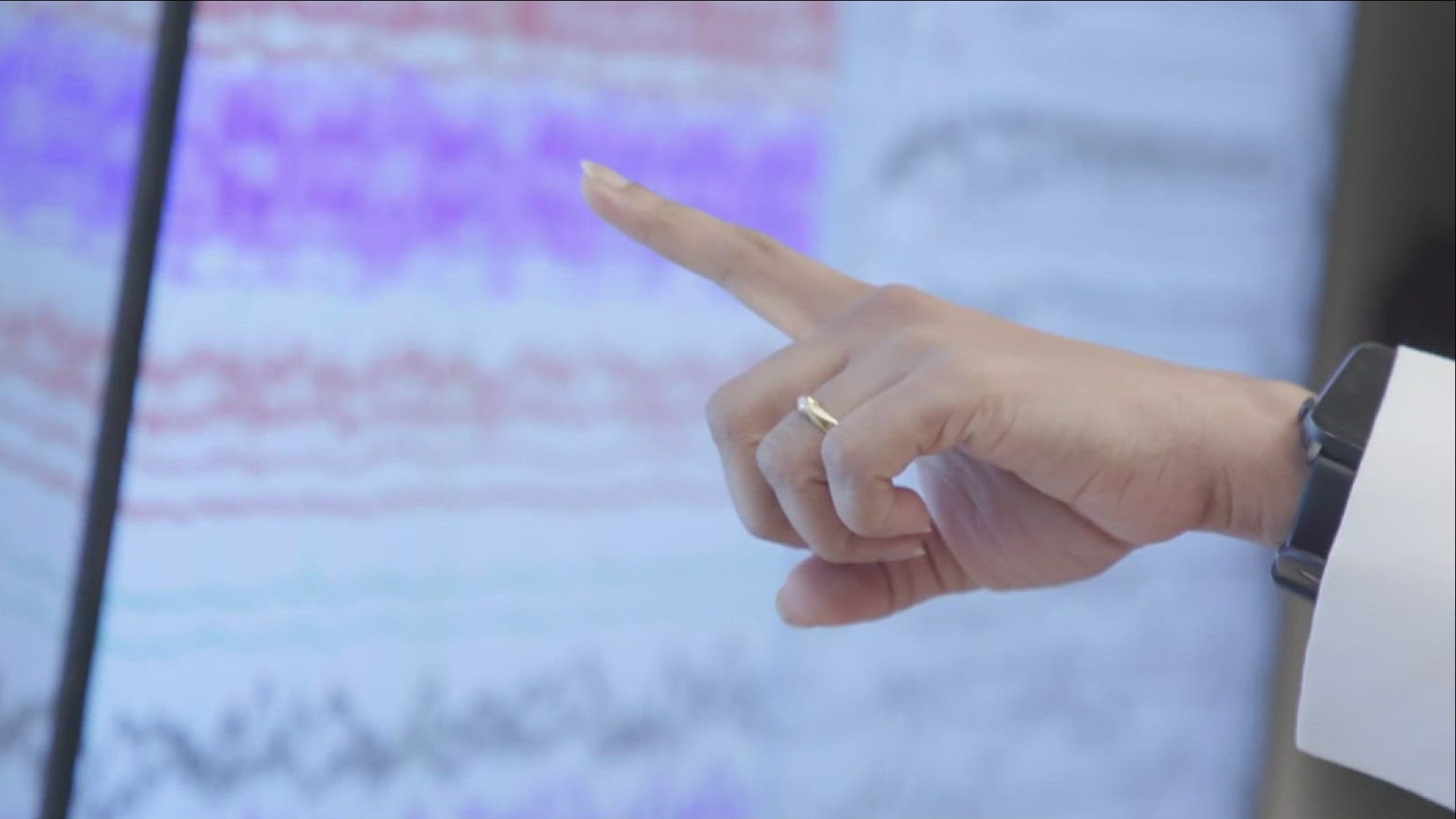YORK, Pa. — It's estimated one in 10 people will experience a seizure in their lifetime, but they don't always look how they're commonly portrayed in movies and TV shows, with someone falling to the ground in violent convulsions.
Recognizing the more subtle symptoms of seizures is key to diagnosing epilepsy and receiving effective treatment, and a new national survey reveals most Americans are unaware of these lesser-known symptoms.
When the hair on Mike Sail's arms stand up, that's how he knows he's having a seizure.
As well as, "A flushing feeling that goes up, starts in the abdomen, works up into my head and into my right ear, and then sometimes I get a little lightheaded and dizzy," said Sail.
Doctor Dipali Nemade is an epileptologist who says seizures can show up in dozens of ways. A national survey by Orlando Health finds most people recognize seizure symptoms portrayed in movies, such as convulsing or losing motor function. However, less than half recognized signs like blinking rapidly, becoming stiff and crying out as symptoms. Only 6% recognized laughing.
"There are some seizures where they have awareness, they know something is wrong with them, but they don't feel a need to go to the doctor because it is not affecting their quality of life to that extent, or they don't know how to explain it," Dr. Nemade said.
Dr. Nemade says that's why educating the public about seizure symptoms and being able to recognize them is so important.
"We need to do a better job at creating awareness about epilepsy and preventing deaths because of epilepsy," she said. "Because these are the cases we can help and we can save somebody's life."
Sail suffered seizures for six years before his diagnosis. Now, he says he has some relief.
"My life has been much better because the frequency and intensity of the seizures have diminished greatly," Sail said.
Dr. Nemade says treatment is hyper personalized for each patient, and in most cases, medication paired with adequate sleep and lifestyle changes can keep seizures at bay. Experts say too many people are living with undiagnosed epilepsy.
If you think your unexplained symptoms may be related to seizures, talk to your doctor or see a neurologist.

